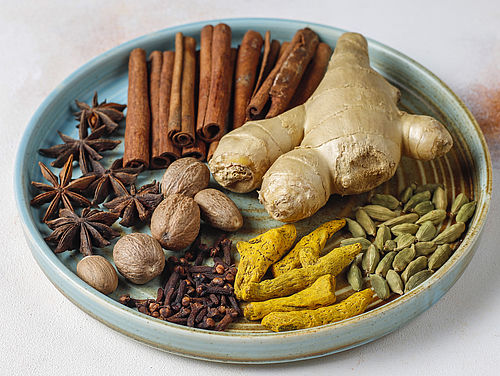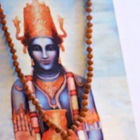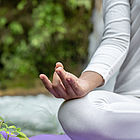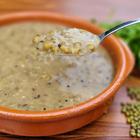
Ayurveda
The science of healthy living
Ayurveda is the oldest, traditional health system in the world. Reason enough to take a closer look at the traditional Indian art of healing and give it a real chance.
Because Ayurveda is more than just a guide - it is a philosophy of life that can be shaped individually for everyone. It lays the foundation for an all-round healthy life on all levels of being by challenging you to rethink your way of life and to take the necessary steps on your own responsibility to follow your unique path towards holistic healing.
In today's India, Ayurveda is firmly embedded in the health care system and is on par with conventional medicine, as these two disciplines actually complement each other very well in our modern society. Why should we not also integrate this ancient, proven teaching into our lives?

History & Philosophy
"Ayus" means life and "veda" means science. "Ayurveda" is therefore the "science of life". The origin of Ayurveda can be found in the Vedic civilisation of ancient India, whose golden age dates back many millennia. The knowledge of this complex healing art was originally passed on orally from generation to generation - the first written records are over 5,000 years old and were written in Sanskrit. What makes this ancient medicine so timeless and modern at the same time? As a complement to the Western health care system, Ayurveda is a holistic concept of life, because it teaches us how to maintain our health, vitality and enjoyment of life until old age, in a self-responsible and practice-oriented way.

Ayurveda is a matter of constitutional type. The five elements fire, water, earth, air and ether (space) form the three doshas, which play an elementary role in Ayurveda. The Vata Dosha describes the principle of movement, which is composed of the elements air and ether - thus the Vata type is a true air person. The metabolic principle is the Pitta Dosha, consisting of fire and water, because Pitta types are just bubbling over with a hot zest for action. The Kapha Dosha, which is described as a formative and structure-giving energy, is made up of water and earth: Kapha types are like a solid as a rock, because nothing can knock them down. Which type are you?

Vata, Pitta or Kapha? - This is the key question in Ayurveda. Certainly, all three doshas or bioenergies are predominant in each of us, only one of them usually predominates, to which we feel we belong. There are also mixed types, provided that two doshas are equally predominant. We speak of tridosha when all three bioenergies are balanced in the body. To find out which dosha dominates in your body, take our Ayurveda test, because knowing your basic constitution is fundamental to better understand your habits and to be able to organise your everyday life according to your individual needs.

Ayurveda for a long and healthy life. As soon as you know what your basic constitution is, you can start to organise your everyday life according to your type. Ayurveda places great emphasis on preventive measures and daily routines, so that a dosha disorder does not occur in the first place or you can steer it in a positive direction. Less is often more: You don't have to turn your entire life upside down right away, but start really small and integrate the Ayurvedic teachings step by step into your everyday life - very soon you will feel the first positive effects on all levels of body, mind and soul.

You eat what you are, or more precisely: you eat what you are, depending on your Ayurvedic type. For each constitutional type, selected foods are recommended that have a positive effect on your dominant or overpowering dosha. But not only the choice and quality of your food plays a role, but also your eating habits, certain food combinations and their preparation. Healing Ayurvedic herbs provide the final touch.

Ayurvedic massages are the most soothing and relaxing thing of all - and the best thing about it is that you can also give them to yourself: Selfcare à l' Ayurveda. Make self-massage your daily routine, because oil massages play a central role in Ayurveda. Warm oils, prepared with Ayurvedic medicinal herbs and adapted to the respective constitution, are massaged in and work on both the wellness and therapeutic levels.
